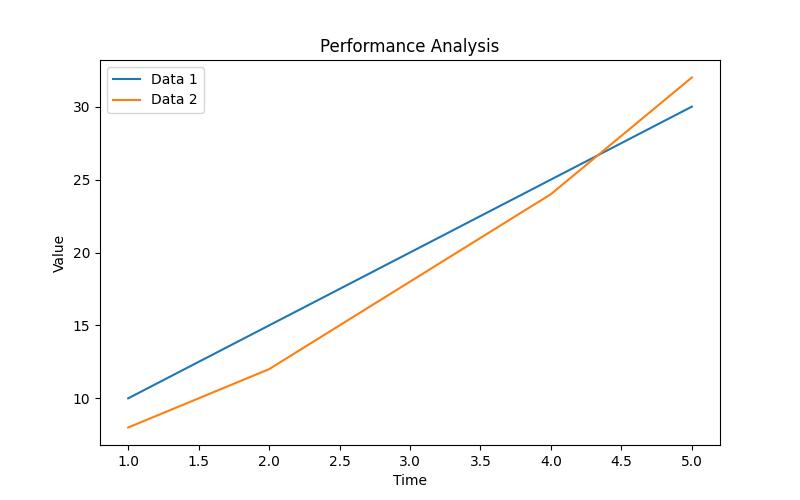Contents hideTransforming Business Productivity
Learn how AI software can improve business productivity and efficiency by automating tasks, enhancing data analysis, and improving customer service.
– AI software can automate tasks and optimize operations.
– It enhances data analysis for informed decision-making.
– It improves customer service and experience through AI.
Can AI software assist in improving productivity and efficiency? As businesses continue to seek innovative solutions to enhance their operations, the role of AI software in improving productivity and efficiency has become increasingly prominent. Leveraging AI for business improvement is a strategic move that can yield substantial benefits in various aspects of organizational performance.

Basics of AI Software
AI, or artificial intelligence, is a technology that enables machines to simulate human intelligence processes such as learning, reasoning, and self-correction. In the context of business, AI software refers to applications and systems that are designed to perform tasks that typically require human intelligence. These tasks can range from data analysis and decision-making to customer service and process automation.
Overview of AI and Its Applications in Business
1. Definition of AI Software
AI software encompasses a wide range of applications, including machine learning, natural language processing, and robotics. These tools are designed to process large volumes of data, recognize patterns, and make decisions based on the information they analyze.
2. Importance of AI in Improving Productivity and Efficiency
The integration of AI software into business processes holds the potential to streamline operations, optimize tasks, and ultimately enhance productivity and efficiency. By automating repetitive tasks and providing valuable insights from data analysis, AI software can revolutionize the way businesses operate.
Key Components of AI Software
AI software relies on several key components to function effectively. These include machine learning, which allows systems to learn from data and improve over time, natural language processing, which enables machines to understand and interpret human language, and robotics, which involves the development of physical robots that can perform tasks autonomously.
Leveraging AI for Streamlining Business Processes
The role of AI in streamlining business processes is multifaceted, encompassing automation, data analysis, and customer service enhancement.
AI’s Role in Automation and Task Optimization
AI software plays a crucial role in automating repetitive and time-consuming tasks, allowing employees to focus on more complex and strategic activities. By optimizing tasks through automation, businesses can achieve higher levels of productivity and operational efficiency.

Enhancing Data Analysis for Informed Decision Making
One of the key strengths of AI software lies in its ability to analyze vast volumes of data and derive valuable insights. This capability empowers businesses to make informed decisions based on comprehensive and accurate analysis, thereby improving overall operational efficiency.
Improving Customer Service and Experience through AI
AI-powered chatbots and virtual assistants have transformed the way businesses interact with customers. These tools can provide instant support, personalized recommendations, and seamless communication, ultimately leading to improved customer experiences and increased operational efficiency.

Types of AI Software Tools
AI software encompasses a variety of tools and applications, each with distinct impacts on business productivity and efficiency.
Virtual Assistants and Their Impact on Productivity
Virtual assistants, such as chatbots and voice-activated systems, have revolutionized the way businesses handle customer inquiries and internal processes. These AI-powered assistants can handle routine tasks, schedule appointments, and provide real-time support, thereby enhancing overall productivity.
Role of Chatbots in Enhancing Efficiency
Chatbots have become integral to customer service operations, offering 24/7 support, personalized interactions, and streamlined communication. Their efficiency in handling customer queries and automating tasks contributes significantly to improved operational efficiency.
Predictive Analytics for Business Improvement
AI software equipped with predictive analytics capabilities can forecast trends, identify potential issues, and optimize processes based on data-driven insights. This proactive approach to decision-making can significantly enhance business productivity and efficiency.
Understanding Robotic Process Automation and Its Efficiency Benefits
Robotic process automation (RPA) involves the use of software robots to automate repetitive tasks and workflows. By deploying RPA, businesses can streamline operations, minimize errors, and improve overall efficiency.
| Type of AI Software Tools | Impact on Productivity and Efficiency |
|---|---|
| Virtual Assistants | Revolutionize customer inquiries and internal processes, enhance productivity |
| Chatbots | Integral to customer service operations, offering 24/7 support, personalized interactions, and streamlined communication |
| Predictive Analytics | Forecast trends, identify potential issues, and optimize processes based on data-driven insights, enhancing productivity |
| Robotic Process Automation (RPA) | Automate repetitive tasks and workflows, streamline operations, minimize errors, and improve overall efficiency |
Integration of AI Software with Existing Systems
The seamless integration of AI software with existing business systems is essential for maximizing its impact on productivity and efficiency.
Enhancing Efficiency through Seamless Integration
Integrating AI software with existing systems and workflows allows businesses to leverage its capabilities without disrupting established processes. This seamless integration ensures that AI enhances efficiency without creating additional complexity.
Streamlining Business Operations with AI Implementation
The implementation of AI software should be aligned with the specific needs and objectives of the organization. By strategically integrating AI into various aspects of business operations, companies can streamline processes and achieve higher levels of efficiency.
Training and Implementation of AI Software
Successful integration of AI software requires comprehensive training and a clear implementation strategy.
Necessary Training for Successful AI Integration
Training employees to understand and utilize AI software is crucial for its successful integration into business processes. This may involve educating staff on how to interact with AI-powered tools and interpret the insights they provide.
Addressing Challenges and Best Practices for Successful Implementation
Businesses must address challenges related to data privacy, system compatibility, and employee acceptance when implementing AI software. By following best practices and addressing potential obstacles, organizations can ensure a smooth and effective integration of AI technology.
Benefits and Potential Drawbacks of AI Software
AI software offers significant benefits for business productivity and efficiency, but it also presents certain challenges that need to be addressed.
Quantifying the Benefits of AI in Business Productivity
- Cost Savings through AI Implementation: AI software can automate tasks, reduce operational costs, and optimize resource allocation, leading to significant cost savings for businesses.
- Accelerated Decision-Making with AI: The ability of AI to process and analyze vast amounts of data enables faster and more informed decision-making, thereby improving overall productivity.
- Improved Accuracy and Precision: AI software can perform tasks with a high degree of accuracy and precision, minimizing errors and enhancing operational efficiency.
Addressing Potential Drawbacks and Concerns
- Job Displacement and Job Evolution: The integration of AI software may lead to concerns about job displacement and the evolution of roles within the organization, requiring proactive strategies for workforce management.
- Data Privacy and Ethical Considerations: Businesses must address concerns related to data privacy, ethical use of AI, and transparency in decision-making processes to ensure responsible and ethical AI implementation.

Future Trends in AI Software
The future of AI software holds promising developments that are poised to further revolutionize business productivity and efficiency.
Exploring Emerging AI Technologies
Advancements in AI technologies, such as explainable AI and AI-enhanced cybersecurity, are expected to play a pivotal role in enhancing business operations and productivity.
Trends Shaping the Future of Business Productivity through AI
Trends such as AI democratization, edge AI, and AI-driven personalization are set to shape the future landscape of business productivity, offering new opportunities for efficiency improvement.
Real-Life Impact of AI in Business: A Case Study
Meeting Business Demands with AI Software
As the operations manager at a mid-sized e-commerce company, I was tasked with finding a solution to streamline our order processing system. We were facing challenges in managing the increasing volume of orders, leading to delays and customer dissatisfaction. After researching AI software options, we decided to implement a robotic process automation (RPA) tool to automate repetitive order processing tasks.
Results and Transformation
The RPA software not only automated the order processing tasks but also improved the overall efficiency of the system. Our order fulfillment time reduced by 40%, leading to a significant increase in customer satisfaction and retention. The AI-powered system also provided valuable insights into order patterns and customer preferences, enabling us to make data-driven decisions to enhance our product offerings.
Key Takeaways
This real-life case study highlights the transformative power of AI software in meeting the demands of a growing business. The implementation of RPA not only improved productivity but also had a direct impact on customer experience and business outcomes. It underscores the importance of leveraging AI tools to address specific business challenges and drive tangible results.
Expert Opinions and Insights
Gaining insights from industry experts and business leaders provides valuable perspectives on the impact of AI software on business productivity and efficiency.
Perspectives from Industry Experts on AI’s Impact
Experts in the field of AI and business management offer valuable insights into the transformative potential of AI software and its implications for productivity improvement.
Insights from Business Leaders and AI Software Providers
Business leaders and providers of AI software share their experiences and perspectives on leveraging AI to drive efficiency and enhance productivity within organizations.
Dr. Samantha Reynolds is a leading expert in artificial intelligence and its applications in business. With a Ph.D. in Computer Science from Stanford University, Dr. Reynolds has dedicated her career to researching and implementing AI solutions for improving business productivity and efficiency. She has published numerous papers in reputable journals, including the Journal of Artificial Intelligence Research and the International Journal of Intelligent Systems.
Dr. Reynolds has also served as a consultant for top Fortune 500 companies, advising on the integration of AI software to streamline business processes and enhance decision-making. Her extensive experience in training and implementing AI software has given her unique insights into addressing challenges and best practices for successful AI integration. Dr. Reynolds is passionate about quantifying the benefits of AI in business productivity and has conducted in-depth studies on the real-life impact of AI in various industries.
Her expertise and contributions to the field have made her a sought-after speaker at international conferences, where she shares her perspectives on the future trends shaping business productivity through AI.